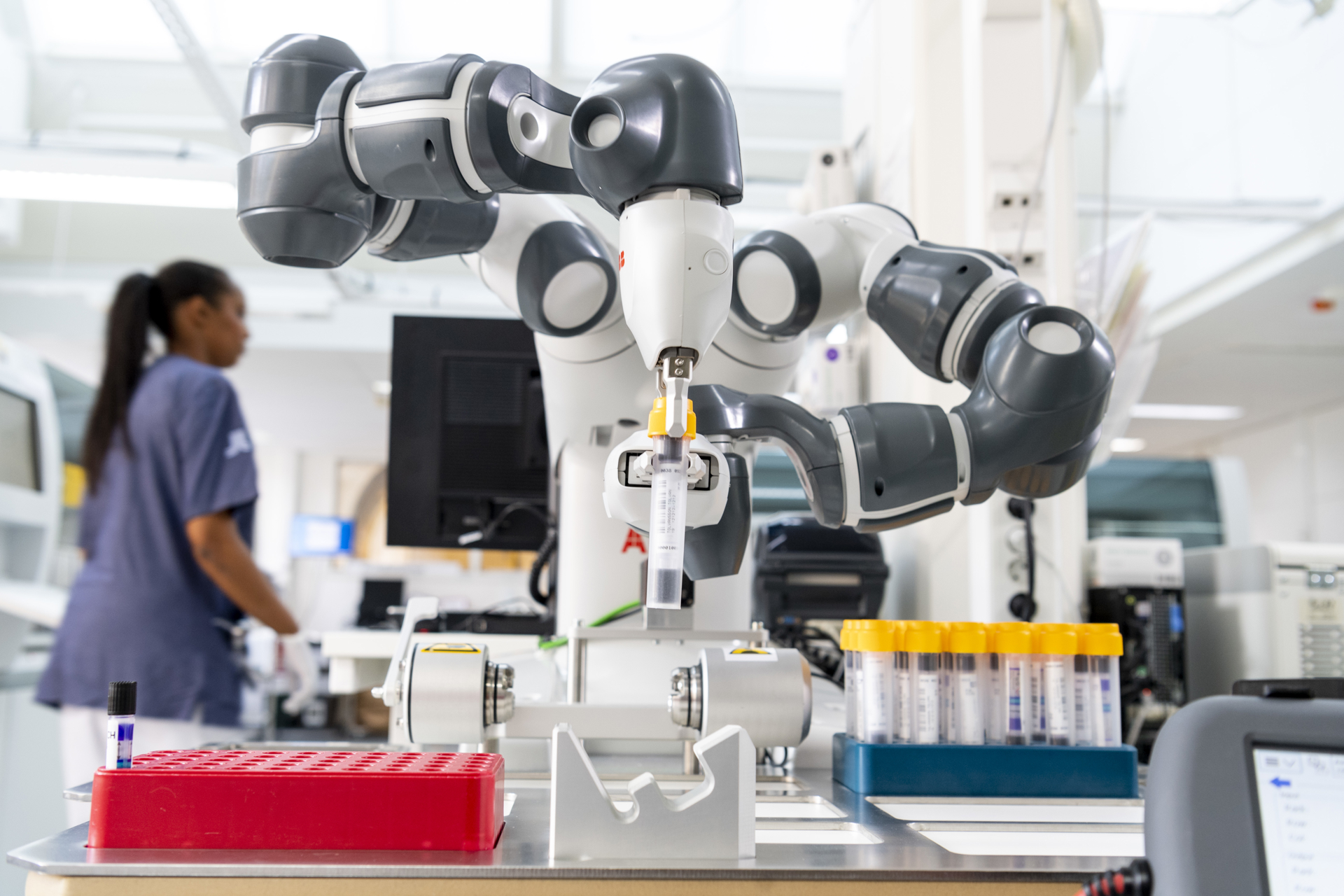Cobots in the lab relieve staff when the pressure increases

The AutoMed project investigated how flexible collaborative robotics can address challenges in highly specialized healthcare, mainly in two areas: Automation at Karolinska University Laboratory (example below) and Automation of patient-centered cleaning in the ward.
In Sweden, as in other parts of the world, clinical staff spend considerable time on manual and administrative duties. How can we change this, so that doctors, nurses and other personnel can devote more time to their areas of expertise – and to patients?
Less worn shoulders with “cobots”
As an effect of the project, small collaborative robots, so-called cobots, are now present at Karolinska University Laboratory to open transport sleeves and scan test tubes – tasks that are done thousands of times a day and that wear the human body. This has been an occupational problem that the lab has been grappling with for a long time without success. An innovation collaboration was therefore initiated to develop new solutions.
Usually, the laboratory handles millions of samples a year. During the COVID pandemic, the pressure increased further. This led to the acquisition of another robot.
“Many of our tasks are monotonous and repetitive, which is why we are pleased to have developed a good solution for our employees,” says Lena Nyman, section manager at the preanalytical unit at Karolinska University Laboratory.
She has been a driving force in the innovation collaboration between KUL and the robotics industry with the support of the hospital’s innovation support department. KUL is now continuing to explore more opportunities with robotics in an EU funded collaboration between healthcare providers, the industry and research institutes.